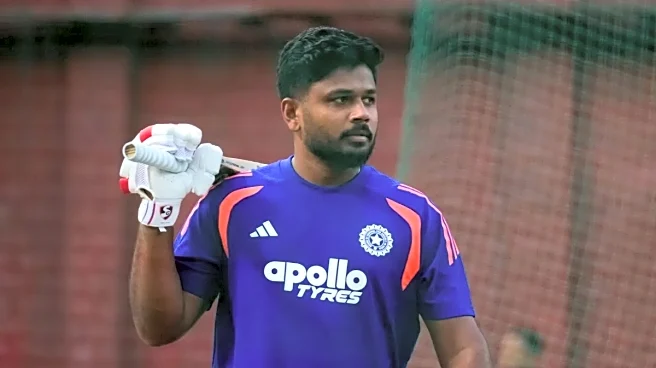In 2025, the so-called “nice guy” has a new nickname- the Golden Retriever boyfriend. On paper, he seems dependable- loyal, eager, agreeable. In practice, his eagerness often masks avoidance. Planning, decision-making, even conflict management lands squarely on his partner. What once felt like affection now often feels like dependence, with women carrying the emotional labour that makes a relationship run.
Being a “nice guy” in modern dating often translates into being a people-pleaser. He’s not mean, but indecisive or helpless, a confusing combination that leaves women without real support when it matters. Meanwhile, independent, driven women who manage careers, finances, and personal goals still find themselves navigating traditional relationship
scripts.
Nearly a third of singles in 2025 report preferring traditional roles, and while there’s nothing wrong with that, research shows even progressive women often unconsciously uphold gendered norms early in dating. Missed texts, unpaid bills, or a lack of initiative can trigger frustration, revealing the persistence of these scripts.
The US Bureau of Labor Statistics’ June 2025 report underscores the gap: women in heterosexual relationships still spend nearly twice as much time on chores, household management, and childcare as their male partners, even while working full-time.
When Tradition Meets Modern Expectations In Relationships
Dating today is paradoxical. Men are expected to chase and lead; women are expected to be pursued, all while asserting independence. This tension creates friction, particularly for high-achieving women who value partnership and equality but still encounter outdated expectations.
Dating coach Priya Mehra notes, “The issue isn’t preferences themselves—it’s whether these gender-based standards align with your true desires, serve your goals, and create opportunities for authentic connection rather than frustration.”
What Are The Hidden Dating Scripts We Still Follow?
Historically, men lead, women choose. Romance equals grand gestures over consistent effort. A 2023 PubMed study confirms the trend: men almost always pay the bill on first dates, and often on subsequent ones. Many women still value men who initiate, plan, and woo. But what happens when this clashes with expectations for equal emotional participation, shared financial responsibility, and genuine partnership?
Are Female-Led Relationships Flipping the Script?
Enter female-led relationships (FLRs), where women take the reins in decision-making, finances, or lifestyle choices. No longer niche, FLRs are increasingly visible in urban and digital spaces. Dr. Samantha Reed, a New York-based relationship therapist, explains: “These dynamics aren’t about control, they’re about efficiency, communication, and leveraging each partner’s strengths.”
Dating apps mirror this shift. Bumble’s 2025 Global Dating Trends report finds 64% of women are upfront about what they want, refusing to settle, while 53% believe men need to redefine positive masculinity on their own terms.
How Modern Dating Is Rewriting Relationship Roles?
Role reversals aren’t only about women leading, they’re about men engaging. Psychology Today notes that men who participate in emotional labour report stronger relationship satisfaction, better communication, and increased personal growth. Modern Indian couples, for example, often share household planning, emotional check-ins, and discussions on finances, skills once considered optional for men.
Transitioning from traditional roles isn’t seamless. Men accustomed to passive positions may resist accountability, while women asserting independence can clash with cultural norms. In India, many high-achieving women report difficulty finding partners who meet them as equals. It’s rare to find someone my age who’s genuinely willing to meet me halfway.
This isn’t just a change in dating mechanics, it’s a generational reset. Millennials and Gen Z are demanding mutual respect, shared responsibilities, and emotional literacy as baseline requirements. Women are no longer willing to “babysit” partners; they expect equal footing, and men who rise to the occasion are redefining what a healthy partnership looks like.
Bumble’s 2024 survey shows singles rejecting perfectionist dating expectations, emphasizing emotional vulnerability and shared values. Nearly 72% globally aim to find a long-term partner in the next year, while 64% of women are now honest about non-negotiables, refusing compromises.
For women, stability and emotional consistency matter more than grand gestures. Nearly 59% cite these traits as priorities in partners, indicating that modern dating is less about drama and more about shared responsibility and authenticity.
Dropping outdated scripts shifts focus from performance to authenticity. Women now ask, “Do we share the same values?” rather than “Did he do the right thing?” Conversations about finances, housing, climate change, and career ambitions are emerging earlier, reflecting more open, transparent communication.


/images/ppid_59c68470-image-177086012892069950.webp)
/images/ppid_59c68470-image-177086006108692667.webp)
/images/ppid_a911dc6a-image-177086002730792843.webp)




/images/ppid_a911dc6a-image-177086355446649864.webp)

/images/ppid_a911dc6a-image-177086352380239409.webp)
/images/ppid_59c68470-image-177086258246560927.webp)

/images/ppid_59c68470-image-177086254430548516.webp)
/images/ppid_59c68470-image-177086265857125048.webp)
/images/ppid_59c68470-image-177086262067478359.webp)
/images/ppid_59c68470-image-177086254645319037.webp)
